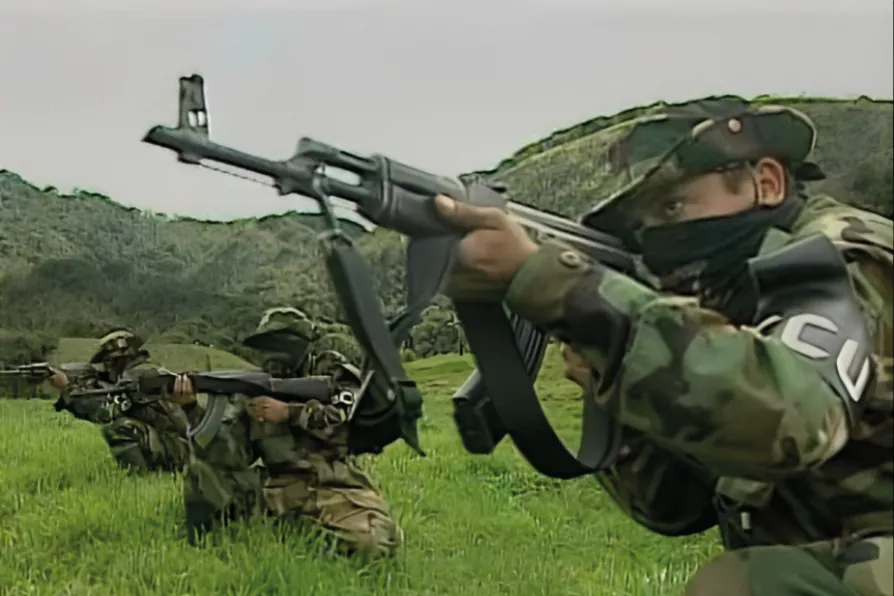Honduras may not be as much in the spotlight as Venezuela and Cuba right now, but Trump's circling vultures are making their move. JOHN PERRY reports

 RIGHT-WING DEATH SQUADS: Members of the ACCU, a component group of the paramilitary AUC
RIGHT-WING DEATH SQUADS: Members of the ACCU, a component group of the paramilitary AUC
THE Colombian military and police colluded with paramilitaries to carry out atrocities including massacres and the forced displacement of thousands of people, according to testimony from a former commander in what was once Colombia’s largest paramilitary federation, the United Self-Defence Forces of Colombia (AUC).
Over four days Salvatore Mancuso, who was once the AUC’s second-in-command, appeared via video in front of judges at the Special Jurisdiction for Peace (JEP), the transitional justice court created in the 2016 peace agreement to investigate and prosecute major human rights violations committed during the armed conflict.
The proceedings were conducted for judges to determine whether Mancuso can provide new and concrete evidence to the JEP, thereby permitting him to formally enter its jurisdiction. This would make him eligible to receive a reduced sentence in return for shedding light on AUC activities.

With Petro, Colombia has been making huge strides towards peace — but is all that at risk with the elections next year? MARK ROWE reports back after joining a delegation to the Latin American country

Colombia’s success in controlling the drug trade should be recognised and its sovereignty respected, argues Dr GLORY SAAVEDRA

Alvaro Uribe is found guilty of witness tampering and procedural fraud, reports NICK MACWILLIAM

Over 30 nations to gather in Colombia to bring a halt to the genocide in Gaza










